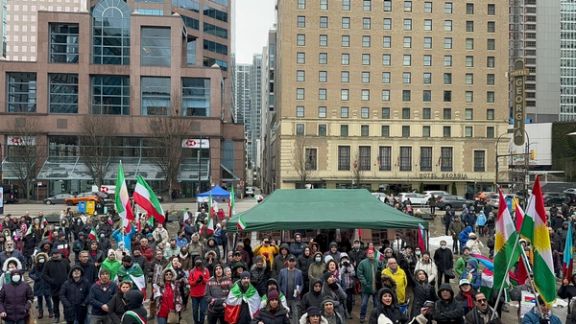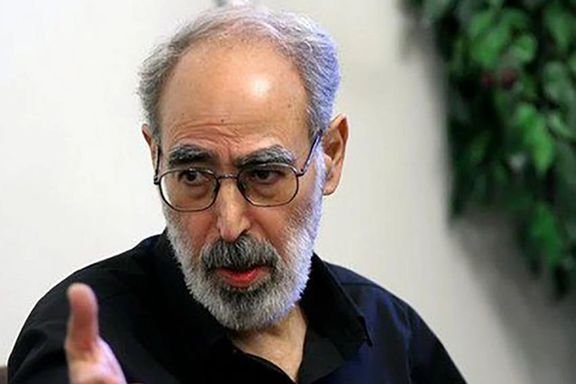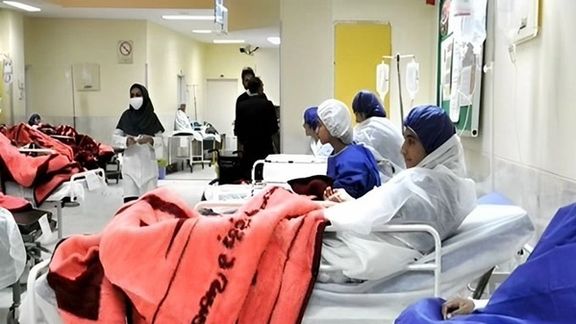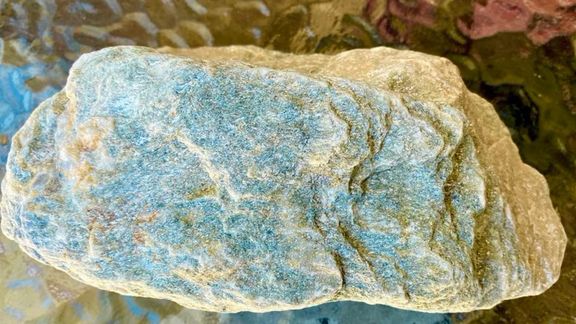Netanyahu Rebuffs IAEA Chief's Remarks Against Possible Attack On Iran

Israel rebuffed as "unworthy" on Sunday comments by the UN nuclear watchdog chief that any Israeli or US attack on Iran's nuclear facilities would be illegal.

Israel rebuffed as "unworthy" on Sunday comments by the UN nuclear watchdog chief that any Israeli or US attack on Iran's nuclear facilities would be illegal.
Having visited Tehran in a bid to loosen deadlocked talks on renewing its 2015 nuclear deal with world powers, International Atomic Energy Agency chairman Raphael Grossi on Saturday said "any military attack on nuclear facilities is outlawed".
He was responding to a reporter's question about threats by Israel and the United States to attack Iran's nuclear facilities if they deem diplomacy meant to deny it the bomb to be at a dead end. Tehran says its nuclear program is peaceful.
"Rafael Grossi is a worthy person who made an unworthy remark," Israeli Prime Minister Benjamin Netanyahu told his cabinet in televised remarks on Sunday.
"Outside what law? Is it permissible for Iran, which openly calls for our destruction, to organize the tools of slaughter for our destruction? Are we forbidden from defending ourselves? We are obviously permitted to do this."
The IAEA said on Saturday Grossi had received sweeping assurances from Iran that it will assist a long-stalled investigation into uranium particles found at undeclared sites and re-install removed monitoring equipment.
Israel has long maintained that it will use all means at its disposal to prevent the Islamic Republic from acquiring nuclear weapons. The United States has also said that all options are on the table if Tehran moves toward weaponization.
Reuters report

Thousands of Iranians in major cities around the world have staged demonstrations against the Islamic regime and called for global attention to the country's brutal crackdown on protesters, including scores of chemical attacks on girls' schools.
In Vancouver, Canada, hundreds came out to demonstrate and call for global attention to chemical attacks on girls' schools around the country. A group of representatives of conservative parties and the New Democratic Party of Canada were also present at the demonstration.
In Toronto and Montreal similar protests were held seeing hundreds protest on a cold and snowy day in solidarity to condemn the poisoning of schoolgirls which began in the religious city of Qom in November.
In the US, Iranians living in San Diego, California, showed their solidarity with fellow countrymen by holding demonstrations and demanding an end to torture and oppression in Iran. Demonstrators also displayed a photo of Pirouz, the lost Iranian cheetah which died of kidney failure last week, three of the country's last of the endangered species.
Iranians living in Sydney, Munich, Hamburg, and Copenhagen held similar rallies.
Three months into the serial poisoning of students which have affected scores of girls' schools, it is believed over 1,000 students have been targeted with unknown numbers hospitalized around the country. No culprits have yet been found nor any answers as to the chemical agents being used.

An Islamic revolutionary turned regime critic, has accused Ali Khamenei of the poison attacks on girls' schools which have left hundreds of students sick and numerous hospitalized.
Abolfazl Qadiani (Ghadyani) said the scores of incidents around the country since November, are a "revenge" against the Women, Life, Freedom movement, at the forefront of which have been schoolgirls and students.
In a statement, Qadiani said of Khamenei: "In his false belief, by suppressing the street gatherings, he found an opportunity to take revenge to appease his evil spirit. So, he has targeted the physical and mental health and safety of the brave pioneers of the movement.”
Qadiani belonged to a leftist, revolutionary group that was supporting Khamenei until the disputed presidential election of 2009, when the Supreme Leader backed the questionable reelection of Mahmoud Ahmadinejad. Qadiani, with many others, protested the results, was jailed and became an opposition figure.
“Khamenei is the same criminal who took revenge on the Americans by throwing some firecrackers in Ain al-Asad, but on that ominous day, with two rockets, he deliberately killed the innocent passengers of the Ukrainian plane in order to use their noble lives and bodies as a human shield for himself,” he said this week.
Qadiani was referring to the downing of a Ukrainian International Airlines flight taking off from Tehran in January 2020, hours after Iran had fired missiles at US bases in Iraq. The IRGC brought the passenger plane down by two missiles and all 176 onboard died.
Interior Minister Ahmad Vahidi, an ex IRGC commander wanted by Interpol for his part in the bombing of a Jewish community center in Buenos Aires in 1994, has been assigned to lead the investigation. No arrests have so far been made.

More than three months after gas attacks began on girls' schools in Iran, the Ministry of Education has not shown any serious reaction to the shocking events.
According to Khabar Online news website in Tehran, at least 1,200 girls have been poisoned by the attacks just in Qom and Boroujerd. Other chemical attacks have also occurred in Tehran, Karaj, Kermanshah and Ardabil.
Khabar Online wrote on Saturday that the education ministry's silence is questionable as it has been quick to react to students singing a funny folk song at a school in Ghaem Shahr (Shahi) in February. The reaction in that case started from firing the teacher and forcing her to apologize on Instagram for "failing to take care of pupils."
The report said that explanations offered so far by officials are generally excuses made usually in the form of news fabrication. The only official reaction by Education Minister Yousef Nouri was dismissing the news of the attacks as "rumors".
Most other Iranian politicians either flatly denied the reports or like President Ebrahim Raisi blamed "the enemies" for the attacks. Many others who usually pass off-hand judgement on almost every development blaming intelligence agencies of the United States or Israel have followed Raisi.
Media linked to the government, including the Tehran Municipality's Hamshahri, implicated opposition leaders such as Prince Reza Pahlavi, women's right activist Masih Alinejad and National Council of Resistance leader Maryam Rajavi and published their pictures as "culprits." Obviously, a few hardliner loyalists believe such accusations in Iran.
But blaming “enemies” also begs the question of where more than a dozen intelligence agencies are when foreign agents can roam around throwing chemical gases into schools.
Meanwhile, the minister implicitly asked the media to push the news of the chemical attacks under the carpet so that the ministry could make up for the educational backlog resulting from the pandemic.
Some hardliners such as the Islamic Coalition Party member Ahmad Karimi-Esfahani flately denied the reports and videos about the gas attacks. He said that those reports were fabricated by "the enemies." The politician further claimed that "it has not been proven yet that anyone has been poisoned" and that "the attacks exist only on social media." This comes while the government has been sending tens of ambulance buses to the schools that were attack and videos of students at hospital are going viral on social media and foreign-based Persian media.
Earlier, vigilante leader Hossein Allahkaram told reporters in Tehran that the news of the attacks were "part of a plot to destabilize and disintegrate Iran and keep the Women, Life Freedom movement going."
Karimi-Esfahani also claimed that disseminating the news of the poisonings were part of "a plot hatched by the enemies." He also claimed that a deputy education minister's statement about "the attacks being launched by a group who opposes the idea of girls going to school was later denied."
Some former Iranian officials such as former Culture Minister Ataollah Mohajerani claimed on social media that the advocates of Women, Life Freedom Movement have deliberately poisoned the students. More shameless accusations are levelled by officials who claimed "the students have poisoned themselves!"
Reformist media in Iran, however, characterized the attacks as "organized crime" and urged the officials to offer convincing explanations rather than levelling fictitious accusations.

An Iranian official says huge deposits of lithium have been discovered for the first time in the country’s western province of Hamadan.
"For the first time in Iran, a lithium reserve has been discovered in Qahavand in Hamedan province", Iran's state television quoted Mohammad Hadi Ahmadi, an industry ministry official.
The reserve is believed to hold 8.5 million tons of lithium, according to the director-general of the ministry's operating department Ebrahim Ali Molabeigi.
“The discovery of this mine took four years and the investor is ready to invest in it and this mine will be launched in the next two years.”
Iran is one of the few countries that has access to adequate amounts of reserves of rare elements and precious metals, and the discovery of the first lithium reserve in Hamedan promises the discovery of other reserves in this province, the ministry official told IRNA.
According to a United States Geological Survey (USGS) report published in 2022, a total of 89 million tons of lithium have been identified worldwide. Australia, Chile, Argentina and China are the main producers.
Lithium is an essential element for the manufacturing of batteries of electric vehicles. Given the scale of the threat posed by Climate Change, it crucially allows the functioning of the cars without the emission of Carbon dioxide. It is also dubbed as the "oil of the 21st century".
This white metal is also an essential component of rechargeable batteries used in cell phones and other electronic devices.

The Iraqi prime minister says Baghdad is not the messenger between Tehran and Washington, but it has its own initiatives in this regard.
In an interview with the Saudi Al-Arabiya network on Friday, Iraqi Prime Minister Mohammad Shia Al-Sudani emphasized that Iraq does not accept any aggression on its borders.
He said that Baghdad officially condemned the actions of Iran and Turkey against its territory and borders, and the security forces of the federal government of Iraq, in cooperation with the Kurdish authorities in the north, control the borders with Iran and Turkey.
The Iraqi prime minister said opposition to other countries from within Iraq should be “peaceful and unarmed.”
“We will not allow any side to bring Iraq into war and conflicts that are against our national interests,” he added.
Al-Sudani further stressed that Iraq is not a messenger between Iran and the United States, but it has an initiative to bring the two sides closer.
Earlier, Iraqi Foreign Minister Fuad Hussein said in an interview with Al-Sharq that the tensions between Iran and the United States affect Iraq either directly or indirectly because Baghdad has good relations with both sides.
He said Baghdad is not the backyard of any country and Iraq's position in this regard is clear.
The Iraqi foreign minister further underlined that the lack of tensions between regional countries benefits Iraq and if Tehran and Washington cannot resolve their differences, Baghdad can manage the crisis between the two.